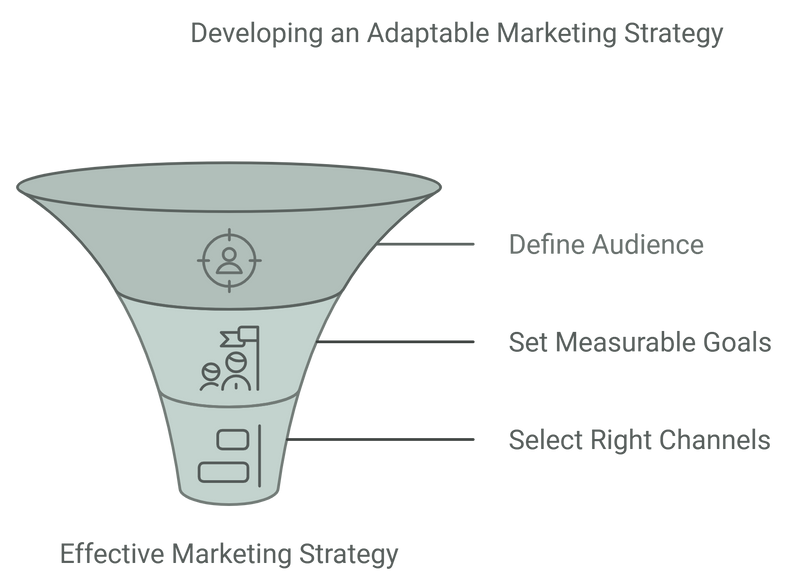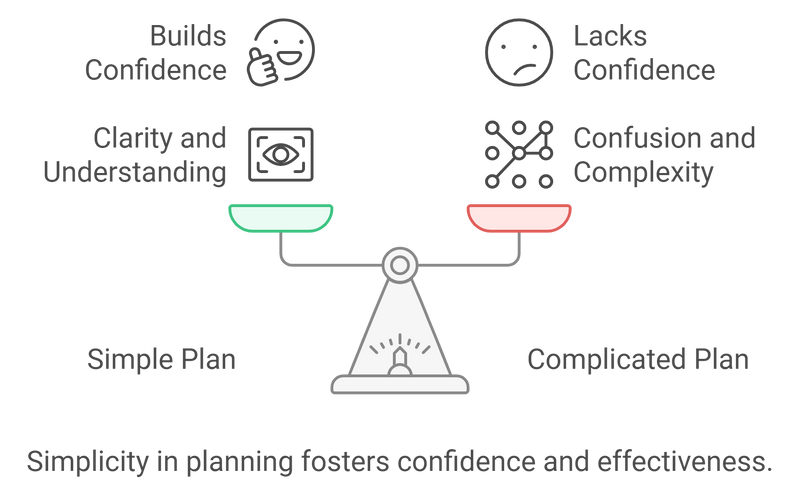Market Study & Business Plan
Crafting a Winning Business Plan and Marketing
Strategy
Every great business starts with a solid plan, but the difference between an idea that stays on paper and one that thrives in the real world is a well-thought-out, actionable business plan and a data-driven marketing strategy. Whether you’re launching a startup or scaling a growing company, these elements are crucial for your long term success.
Let’s explore why they matter and how to make them work for you:
The Foundation of Your Business: A Strategic Business Plan
A business plan is more than just a document—it’s the blueprint that guides every decision, defines your goals, and gives you a roadmap for navigating the challenges of entrepreneurship. But a great business plan doesn’t have to be complicated or overly formal. It needs to be clear, focused, and adaptable.
Start with Your Vision
What problem is your business solving? Identify the gap in the market and define your unique value proposition. Imagine a small health food startup targeting eco- conscious consumers—its business plan would highlight how its organic, sustainably sourced products are different from conventional options.
Market Research
A thorough understanding of your market gives you a competitive edge. Dive deep into the needs, behaviors, and preferences of your target audience. A strong plan shows how you’ll stand out. The goal is to prove demand for your product, using data to back up your assumptions.
Financial Planning
Budgeting, revenue projections, and cost analysis are vital. You need to know where your money is coming from and where it's going. This section also helps you secure funding from investors by showing them how your business will grow and make money over time.
The Key to Growth: An Adaptable Marketing
Strategy
Once your business plan sets the stage, your marketing strategy puts your plan into action. The most successful marketing strategies are dynamic and built around understanding and addressing the needs of your customers.
Define Your Audience
Marketing today isn’t about reaching everyone—it’s about reaching the right people. Identify the segments of your audience that are most likely to buy, engage, and stay loyal. A small fashion brand, for instance, would focus its strategy on niche communities that value ethically produced, high-quality clothing.
Select the Right Channels
With so many platforms available—social media, email, SEO, paid advertising—it’s easy to feel overwhelmed. The key is to focus on the platforms that your audience uses most. Are they more active on Instagram, or do they respond better to targeted email campaigns? Choose wisely to get the most out of your marketing budget.
Set Measurable Goals
What do you want your marketing to achieve?
Whether it’s increasing brand awareness, driving sales, or growing your social media following, setting measurable goals ensures that every campaign has a purpose. These objectives should align with your business goals, ensuring that marketing supports overall growth.

Problem-Solving and
Adaptability
A winning business plan and marketing strategy are not static. Markets evolve, customer preferences change, and unexpected challenges arise. The companies that thrive are the ones that are prepared to adapt.
Imagine a small e-commerce business facing logistical disruptions. Its original business plan didn’t account for these challenges. However, a flexible approach allowed the business to pivot, find alternative suppliers, and continue delivering products on time—retaining customer trust.
Building a Strategy that
Inspires Action
Great strategies do more than just solve problems—they inspire growth. Take the example of a tech startup that was struggling to stand out in a saturated market. By leveraging customer feedback and data, they pivoted their marketing efforts, focusing on specific customer pain points with personalized campaigns. As a result, engagement skyrocketed, and their customer base grew exponentially.
The takeaway? Your business is an evolving story, and your strategy should reflect that. Don’t be afraid to experiment, learn from mistakes, and push boundaries. A solid plan provides structure, but the real success comes from how you execute it and adapt to changing environments.
The Power of Professionalism and Simplicity

Finally, remember that professionalism doesn’t have to mean complexity. A simple, well- executed plan that’s easy to understand will always outperform a complicated one. Investors, employees, and customers alike want to feel confident in your vision—and simplicity builds that confidence.
Conclusion: The
Winning Combination
Once your business plan sets the stage, your marketing strategy puts your plan into action. The most successful marketing strategies are dynamic and built around understanding and addressing the needs of your customers.
